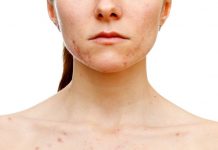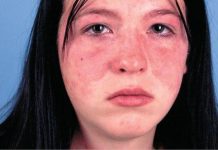There are two types of lupus that most people know about. There is systemic lupus, which is something that a lot of people know about and that can be a very devastating diagnosis to get from a doctor and there is discoid lupus.
Even though discoid lupus is not as serious as systemic lupus, it’s still something that can make life very uncomfortable for those who have it.
Discoid lupus is a form of lupus which mainly affects a person’s skin. If you think that you might have discoid lupus, here are some of the things that you should look for.
Lesions
People who have discoid lupus will sometimes see a rash on their skin that is shaped like a disc, hence the name discoid lupus.
These skin rashes can be anywhere from five to ten millimeters across and may have a circle that is dark red in color which goes around another circle which is pink and scaly. These lesions usually aren’t itchy or painful, although they can become hard.
Sensitivity
A person who has discoid lupus will likely find that they are sensitive to light and that they have trouble going outside on a sunny day without sunscreen.
If they are outside for a long period of time, they may find that they are getting some of the itchy skin lesions. These lesions can also happen because of cold, trauma, or mental anguish.
Other less common symptoms of discoid lupus are:
- lesions on mouth, eyes, or nose (mucosal)
- lesions on feet(Plantar) or hands (Palmar)
When you go to the doctor if you have discoid lupus, the doctor is likely to take a biopsy of your skin to make sure that it’s not anything else. He or she may also take blood work.
If you end up being diagnosed with discoid lupus, the doctor is likely to tell you to avoid direct sunlight or to wear sunscreen. You should also make sure that the clothing you wear outside is worn so that as little of your skin is exposed as possible.
When you have lesions, the doctor will likely give you some cream that is made to help with inflammation, ointments and aloe. Make sure that the lesions you have are kept clean so that you reduce your chance of infection.
Discoid lupus is not something that is fun to deal with, but as the time goes on you will find what works best for you.














